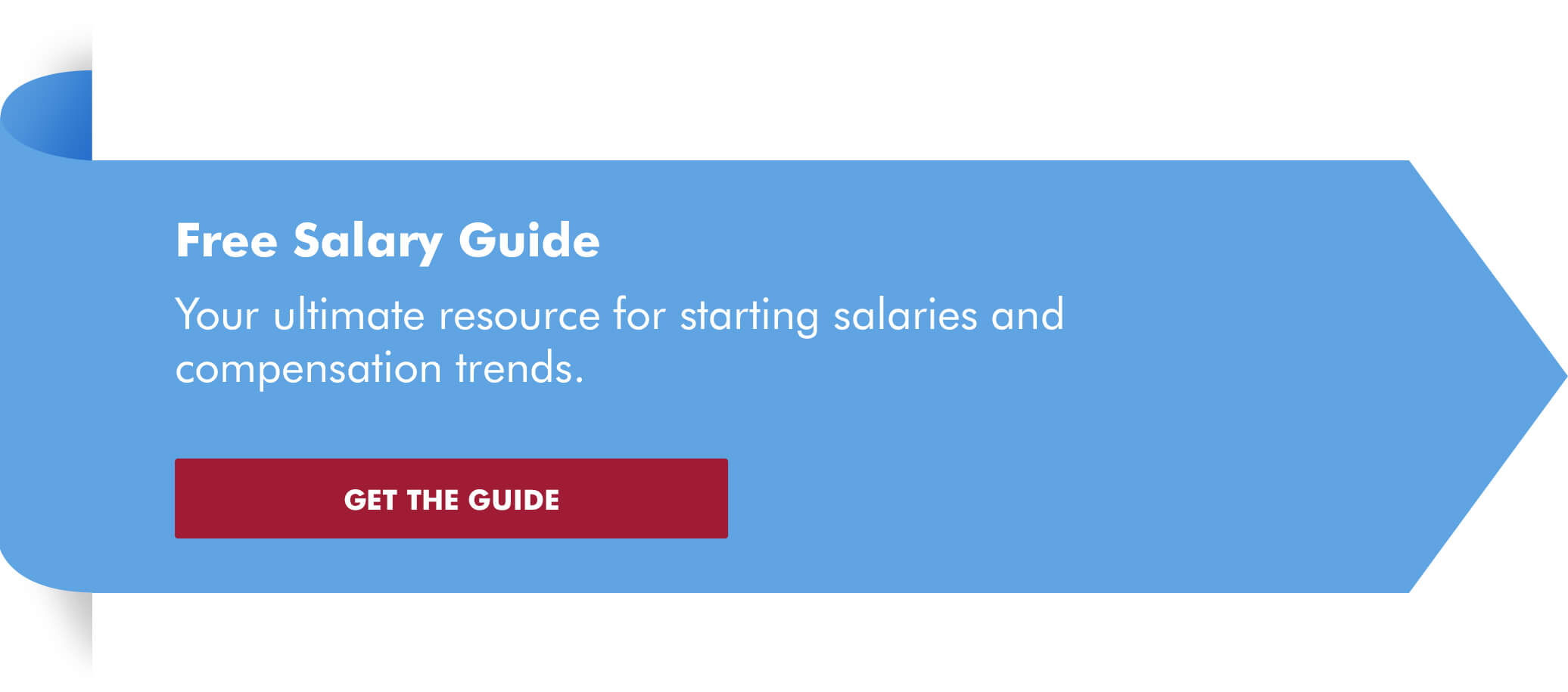Business analytics skills and nontechnical skills used to be “nice to haves” for accounting and finance jobs. Today, they’re requisites for many roles in the profession.
The escalating demand for professionals with these skills is creating recruiting and retention challenges for employers, according to a report from Robert Half and the IMA® (Institute of Management Accountants). The report, Building a Team to Capitalize on the Promise of Big Data, finds that companies are struggling to fill talent gaps in their accounting and finance teams on many fronts — and especially for data-driven initiatives. Below is an overview of some the most highly sought-after technical and soft skills that these employers seek to recruit and retain for their teams, based on the report’s findings.
Download a copy of the report here.
Business analytics skills in demand
The proliferation of business intelligence (BI) is creating both a need and an expectation that accounting and finance teams do much more than just report on the numbers. They now must be able to turn financial data into actionable insights and recommendations for the organization’s key decision-makers. (The BI trend is also opening the door for multiple types of business analyst careers.)
Employers are facing significant talent gaps in these areas, according to the Robert Half and IMA report:
- Identifying key data trends
- Data mining and extraction
- Technological acumen
- Statistical modeling and data analysis
Nontechnical skills in demand
Finance leaders also want staff to have excellent verbal and written communication skills — and this need ties closely to the growing importance of business analytics.
The Robert Half and IMA report notes that today’s accounting and finance professionals are “increasingly expected to serve as business partners — particularly as experts who can use data analytics to provide strategic recommendations — [and] companies need them to be problem solvers and readily adaptable to change.”
Among the soft skills gaps that employers need to fill are decision analysis and strategic thinking.
An ideal time to invest in growing your skills
While the shortage of accounting and finance professionals with in-demand skill sets is due partly to current market dynamics such as low unemployment, research by Robert Half and the IMA also found that many employers’ staffing challenges are “self-inflicted.”
Lack of competitive compensation is one common issue, as is poor staffing management. So too is lack of training opportunities for staff. All of the above are making it difficult for employers to successfully execute their data-driven initiatives. (The report outlines a few other obstacles they may need to overcome as well, including resistance to change and inadequate IT systems.)
So, the good news for accounting and finance professionals is that even if you don’t yet have the array of skills that businesses seek for big data projects, now might be exactly the right time to ask your employer to help you earn them. One key takeaway from the Robert Half and IMA report is that companies can take steps to build teams with in-demand skills by improving their training programs. The research also found that investing in professional development is one of the most effective ways for organizations to retain financial professionals with business analytics skills.
If in-house training or mentorships aren’t available at your organization, look for workshops, seminars or other programs tailored for professionals that focus on developing business analytics skills and interpersonal abilities. Take a list of options to your chief financial officer or manager to discuss the possibility of reimbursement and ask for time to pursue these opportunities.
Business analytics skills and soft skills are becoming increasingly essential for many types of accounting and finance jobs. Whether you’re a financial analyst or an internal auditor, it’s important that you learn and refine these abilities if you want to increase your marketability and earn top compensation in your profession. Building these skill sets also might inspire you to take the business analyst career path, where you can apply your expertise to a wide range of data-driven projects.








